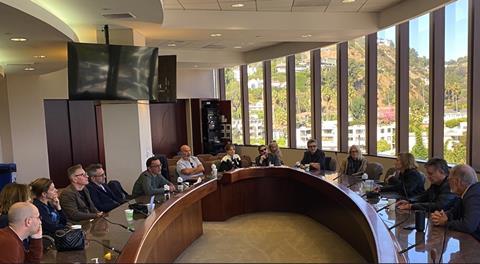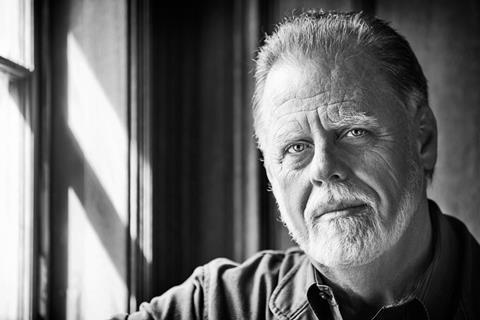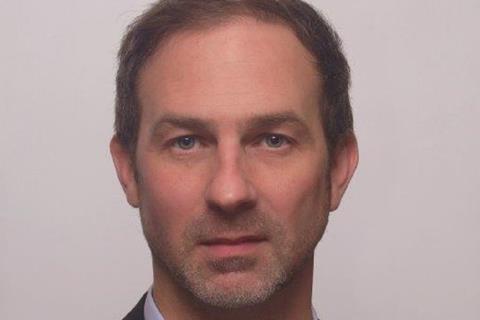
As US indie films struggle at the French box office and French films face a tough US market, the Franco-American Cultural Fund (FACF) is working to unite the two industries through dialogue and collaboration between creatives and executives and the promotion of French films in the US.
The FACF’s flagship event, representing 85% of its annual activities, is The American French Film Festival (TAFFF) in Los Angeles, which is taking place from October 28 to November 3. The event screens the most French films at any festival outside France.
TAFFF’s industry programme includes a series of closed-door panels with major players from both industries. Writers Guild America West (WGAW) is hosting a conversation with writer-producer Paul Dichter about structuring US-style writers’ rooms and Taylor Hackford, director and FACF board member, is moderating a Directors’ Guild of America (DGA) panel with Richard Linklater, Jason Reitman and Sean Baker focused on why the immersive and collective experience of theatrical cinema is vital.
As part of the festival’s activities, the MPA is bringing a delegation of French producers and directors to Warner Bros.’ studio to learn more about the production process and how to pitch original projects or adaptations out of France to US executives, complete with case studies.

There will also be a slew of networking opportunities, including an opening-night soirée following the premiere of Rebecca Zlotowski’s French-language A Private Life with Jodie Foster set to attend, a closing-night cocktail party after the world premiere of Yann Gozlan’s Guru, and a mid-week rendez-vous following the premiere of Nouvelle Vague co-hosted with Netflix.
“We are trying to foster a symbiotic mutual need and exchange between the French and American industries,” says director and TAFFF board member Taylor Hackford.
“It is not a great time [in both the US and France] for the theatrical experience, but it starts with dialogue. There is a vital need to continue making films for the big screen, so we have to continue to try.”
Partnership
The FACF was founded in 1996 by the Directors Guild of America (DGA), Motion Picture Association (MPA), Writers Guild of America West (WGAW), and France’s Sacem (Society of Authors, Composers and Publishers of Music). It is financed through private copy levy funds and chaired by Sacem CEO Cécile Rap-Veber, with Costa-Gavras as honorary president.
In addition to Hackford, the FACF board includes director and DGA president Michael Mann, and MPA chairman and CEO Charles Rivkin.
Beyond TAFFF, the FACF also supports the D’Ornano-Valenti Award for best French first feature at Deauville American Film Festival, Albertine Cinematheque screenings on US college campuses, and various masterclasses and cultural exchanges year-round.
The fund also works to support and showcase the growing number of Franco-American projects selected for major festivals and taking part in awards season. This year they include Cannes premieres Richard Linklater’s Nouvelle Vague, Rebecca Zlotowski’s A Private Life and Kristen Stewart’s The Chronology Of Water, as well as Jim Jarmusch’s Golden Lion winner Father Mother Sister Brother at Venice, and Alice Winocour’s Couture, which premiered in Toronto.
Box-office challenges
The FACF is part of efforts to create a stronger formal partnership between the two industries to boost the box office performance of each. French films grossed a total €19m in the US in 2024, compared to €26m in 2019, according to the CNC. Similarly, US independent titles often fail to attract large audiences in France. There is also no official co-production agreement between the US and France, limiting access to shared financial incentives.
Hackford notes growing interest from France’s CNC under the new president Gaëtan Bruel, for a more formalised collaboration with the FACF, and informal talks are underway between the two organisations. “It is a step in the direction of trying to formalise the hierarchy and infrastructure of filmmaking in these two countries and integrate them,” he says.
Despite a long-standing symbiotic relationship, the French and US film sectors differ significantly in structure. “In America, it is all about work for pay and the copyright goes to the studio, whereas American filmmakers look to France as a place where creatives make work and own their work,” Hackford suggests.
At its events led by TAFFF, the FACF is working to foster dialogue between executives to share good ideas from both industries.

“The US industry is increasingly looking to France for inspiration, particularly from its unique distribution system,” says Louis Hallonet, Sacem’s director of cultural Affairs at Sacem and FACF director. “The French industry is looking at the US for production techniques and stories that can be exportable. Exchanging best practices is even more crucial today.”
Hackford underlines what he sees as a real urgency to dialogue. “The FACF has always been vibrant, but it has been even more active recently because the whole idea of filmmaking has been under attack both from technology and politically for the past few years. Let’s not be fooled or naïve about how difficult cultural exchange in general is right now.”
The FACF itself remains politically neutral. Writer and board member Howard Rodman adds, “We want to ensure that cultural exchange does not have tariffs on it. Whatever the current government legislation, we are here to make sure that the conversation between the two filmmaking communities continues and that it is sustainable for the next generation.”

























No comments yet